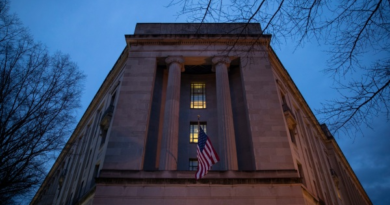Late-stage VCs may be preventing their startups from going public in 2024
Founders might have unintentionally given their VCs too much power to block an IPO

While some investors are loudly bemoaning that the IPO window can’t stay shut forever, other VCs themselves are actually part of the problem.
A lot of standard VC deal terms give investors the ability to block an IPO or acquisition if they didn’t think the timing or price was right, Eric Weiner, a partner at Lowenstein Sandler, told TechCrunch. While it’s relatively uncommon for investors to put in direct language to have the ability to block an IPO — although he has seen it in the past — there are very table stakes deal terms that essentially allow investors with preferred shares to do the same thing, he added.
Investors with preferred shares hold more power than those with common stock and have a say, and usually a vote, when a company is going to perform an event that would dilute their shares or convert them to common stock. The IPO process does both of these things. “It’s not easy to go public,” Weiner said. “A lot of things have to align.”
Ryan Hinkle, a managing director at Insight Partners, said that before a company can go public, its investors with preferred shares — especially those that set the terms in the most recently raised round — have to want an IPO. In a good market, investors and founders are likely to agree on the right time to go public. Today a founder might be ok exiting below their startup’s last valuation. But their investors have to be ok with that too.
“Any preferences in that stock go away, you no longer have a 1x liquidation preference, you don’t have a named right to the board when you flip into being common stock,” Hinkle said about what happens to VC shares after an IPO. “The last capital raise, if you are not above that, the last investor basically needs to want the IPO or it doesn’t happen.”
A 1x liquidation preference means the investor gets first dibs on having investment money repaid in the case of an acquisition, ahead of any other investors. It’s a common term for late-stage investors agreeing to pay higher prices for their stake to boost a startup’s valuation. The term more investors (especially from early stages) prefer is pari passu – which grants all stockholders an equal share.
Such elevated rights is likely a hang up for many startups who raised rounds in 2021. When late-stage startups raised at sky-high valuations in 2021 they may not have realized how much power they were giving their late-stage investors if the market cooled, which it did.
“People confuse up and to the right, with a god-given right,” Hinkle said. “We have the right to life, liberty and the pursuit of happiness. We do not have the right to up and to the right.”
Alan Vaksman, a founding partner at Launchbay Capital, agreed. He added that there is always a lot more friction between investors and startups about the decision to IPO than investors would like to admit. He added that it’s not all coming from a negative or selfish place either. These investors have a fiduciary duty to their LPs to make the smartest financial decisions to drive the highest returns back to their investors. Pushing a company to IPO when it could potentially return more capital if it waited, isn’t smart.
The public markets have also changed in the last few years. Hinkle said that traditionally companies should have eight quarters of strong growth and metrics before hitting the public market. While companies could get away without that in 2020 and 2021, they won’t be able to now. Vaksman agreed.
“The public markets don’t care as much about your growth but more about pure financials, good-old profitability and margins,” Vaksman said.
Plus, the rise and maturation of the secondary markets, where private shareholders can sell stock in company-approved transactions, is also playing a big role for VCs. Secondaries let them get liquidity if they need it, rather than pressuring their valuation-depressed startups to go public.
Founders dealing with VCs who may be dragging their feet might cause tension in the boardroom, but could produce better results for the startups, their VC backers and their VC’s underlying LPs.
“While I would have guessed a year ago that we would be closer to normal than now, SVB threw a big wrench in the world, the increased tensions in the Middle East, these moments of uncertainty introduces fear, doubt and risk,” Hinkle said. “I would not expect booming IPOs in this calendar year.”




